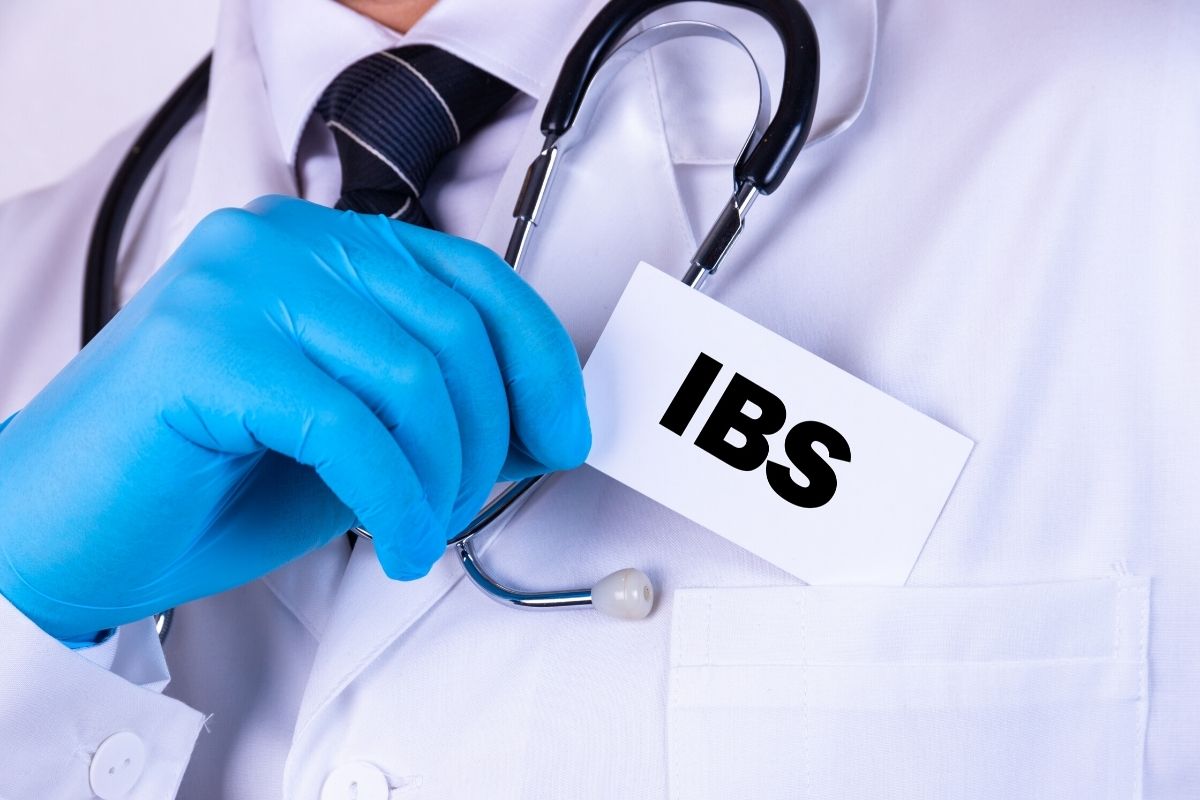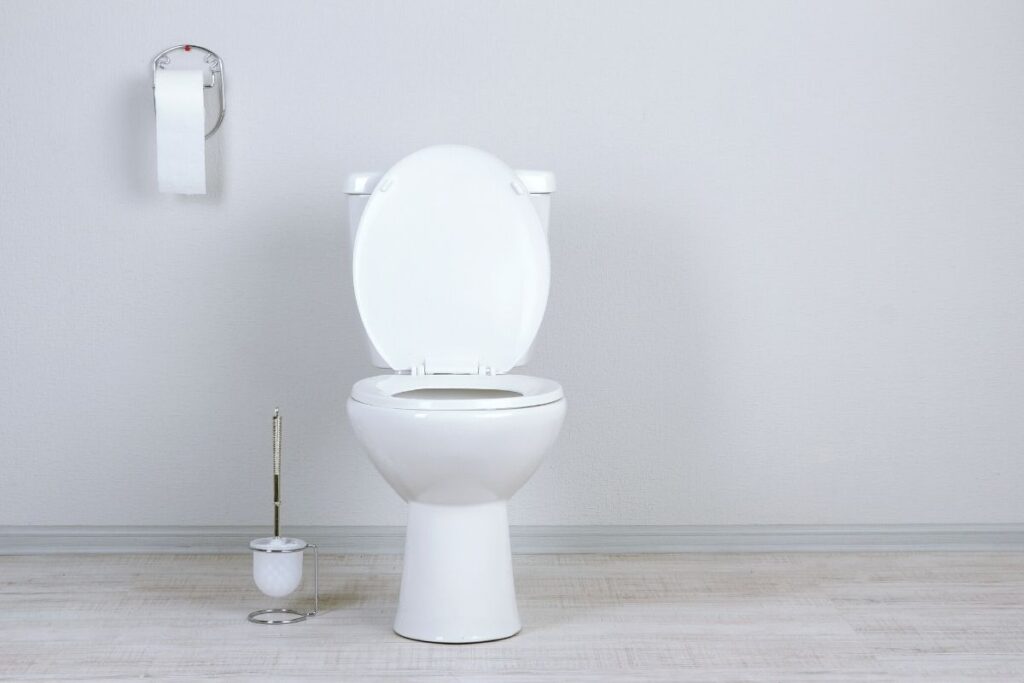
Can IBS cause bloody stools?
IBS can be a concerning and life disrupting digestive issue.
Many who have been diagnosed with IBS have a wide range of bowel related symptoms such as:
- Bloating
- Cramping
- Abdominal pain
- Constipation
- Diarrhoea
In many cases, the diagnosis of IBS is reached once other digestive problems have been excluded.
This would often include examinations and tests for:
- Coeliac disease
- Lactose intolerance
- Inflammatory bowel diseases
- Bowel cancer/colon cancer
- Ovarian cancer
However, over time IBS symptoms can change and if blood is visible in the stool further investigations may be required to ensure not changes have taken place in the bowel. (1)
IBS and blood in stool, should I be worried?

Due to the nature of IBS, symptoms can change over time, with factors such as stress, medication and diet playing a role.
Rectal bleeding can be common in those with IBS-C, the type of IBS with constipation. It’s often caused by small tears in the anus due to fecal impaction. This is the increased load of feces (poo) in the rectum that places pressure on the lining that can then lead to injury.
This would commonly be seen in the stool a bright red blood due to the fact that it is reasonably fresh. Typically, this would be noticed in small amounts on toilet paper.
However, if there is a sudden change in IBS symptoms and persistent blood in the stool lasting for several days, this would require further investigation from a doctor or gastroenterologist to rule anything else out. In particular colon cancer which has better treatment outcomes if diagnosed at an early stage. (2)
When should you worry about rectal bleeding?

If symptoms of IBS change suddenly, particularly the frequency of bowel movements and increased pain and is accompanied by an increase amount of blood, further examination would generally be advised.
The shade and volume of the blood can also indicate the degree of concern.
Typically, if the individual is constipated and the blood that is present is bright red and in small amounts this is likely due to a small tear in the anus of haemorrhoids.
The appearance of blood in the stool can also take another form which may be harder to spot.
It is generally accepted that the further the blood travels through the colon, the darker it appears. This means that can blood can appear in the stool in what can be described as “coffee grounds” and would take the appearance of dark spots in the stool which can indicate a bleed higher up within the digestive tract.
This may also lead to a stool that is generally darker in colour.
While this may indicate the need for further examination to rule out colon cancer. Other causes of this are a tear, inflammation or certain medications.
NSAIDs (non-steroidal anti-inflammatory) medication such as Ibuprofen, in particular may contribute to irritation that can result in a bleed. (3)
IBS and Rectal Bleeding

While in severe cases of IBS, there may be blood, it is not a commonly experienced symptom.
IBS may be causes by infections in the digestive tract or as the consequence of viral of bacterial gastroenteritis. In the acute period of these infections, bloody diarrhoea is not uncommon. This would generally revolve once the infection has been cleared.
In some individuals, general symptoms of IBS may remain and be termed post infectious IBS (PI-IBS) however, even following the infection, blood would not be common. (4)
IBS blood in stool and mucus
The digestive tract has a thin layer of protective mucus covering its surface. This may shed on a daily basis should not be visible in the stool.
However, when the lining of the digestive tract becomes inflamed or irritated, mucus production is increased to protect it.
This higher amount of mucus can often be visible in the stool of those with IBS and would be pale or white in colour.
However, if there is a sudden increase in the amount of mucus produced alongside an increase in pain and the presence of blood, further investigation would often be suggested to investigate other causes such as colon cancer. (5)
Bloating and blood in stool
Bloating is one of the most common digestive symptoms and is present across a wide ride of gut conditions.
These include:
- IBS
- SIBO
- Inflammatory bowel disease
- Coeliac disease
- Ovarian cancer
- Colon cancer
Due to its association with these other conditions, if bloating persist or worsens, further investigation can often be important to rule out any other conditions.
This would be particularly true if blood is present in the stool. (6)
IBS blood when wiping
Bright red blood that appears on toilet paper can often be a sign of a tear in the lining of the rectum. Often the results of constipation or haemorrhoids.
Dietary approaches to improving bowel movements can often ensure adequate fibre intake as well as maintaining optimal hydration.
These 2 key factors to support bowel motility be help reduce fecal impaction reduce the strain placed on the bowel wall. (7)
IBS rectal pressure
This increase in rectal pressure in the bowel will not only be putting additional strain on the bowel wall but it may lead to changes in the balance on the beneficial bacteria in the colon.
This may be associated with an increase in methane producing organisms, who can then contribute to a further reduction in bowel motility and disruption within in the colon. (8)
References
- https://www.ncbi.nlm.nih.gov/books/NBK534810/
- https://www.ncbi.nlm.nih.gov/pmc/articles/PMC1266237/
- https://www.ncbi.nlm.nih.gov/pmc/articles/PMC1239576/
- https://www.fairview.org/patient-education/89211
- https://www.ncbi.nlm.nih.gov/pmc/articles/PMC3758667/
- https://www.ncbi.nlm.nih.gov/pmc/articles/PMC3264926/
- https://www.ncbi.nlm.nih.gov/books/NBK563143/
- https://www.ncbi.nlm.nih.gov/books/NBK563143/






